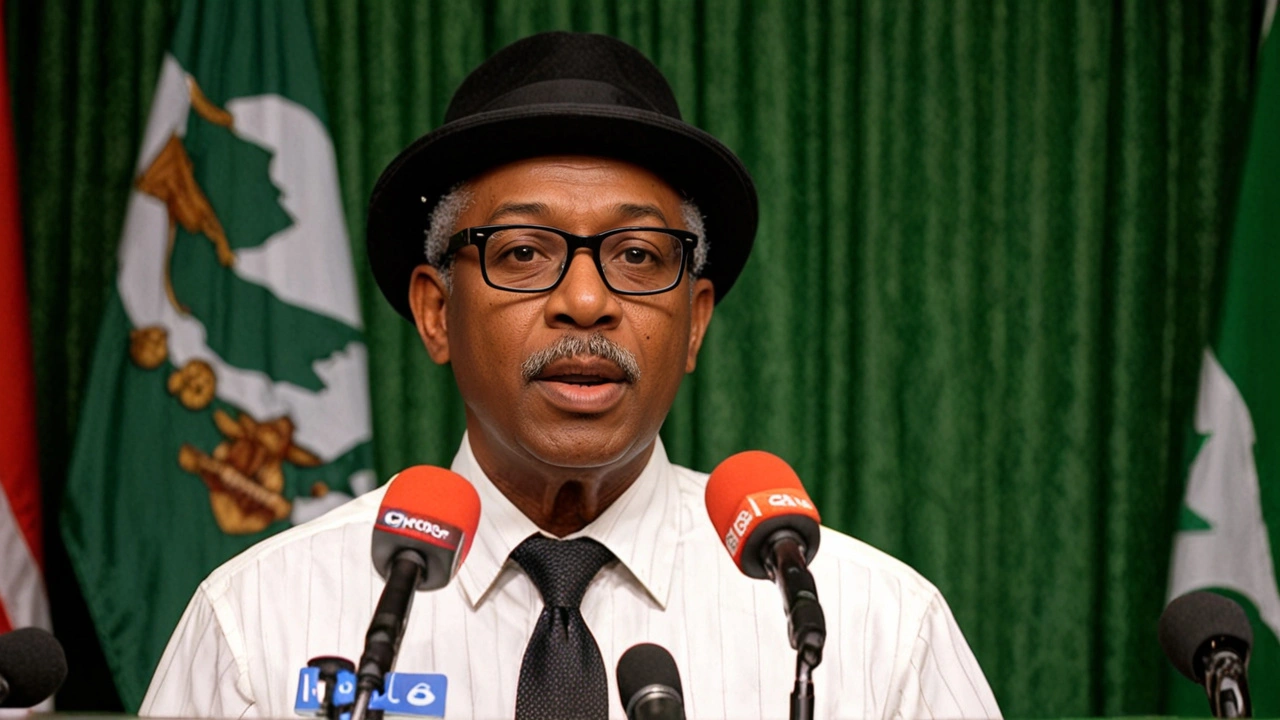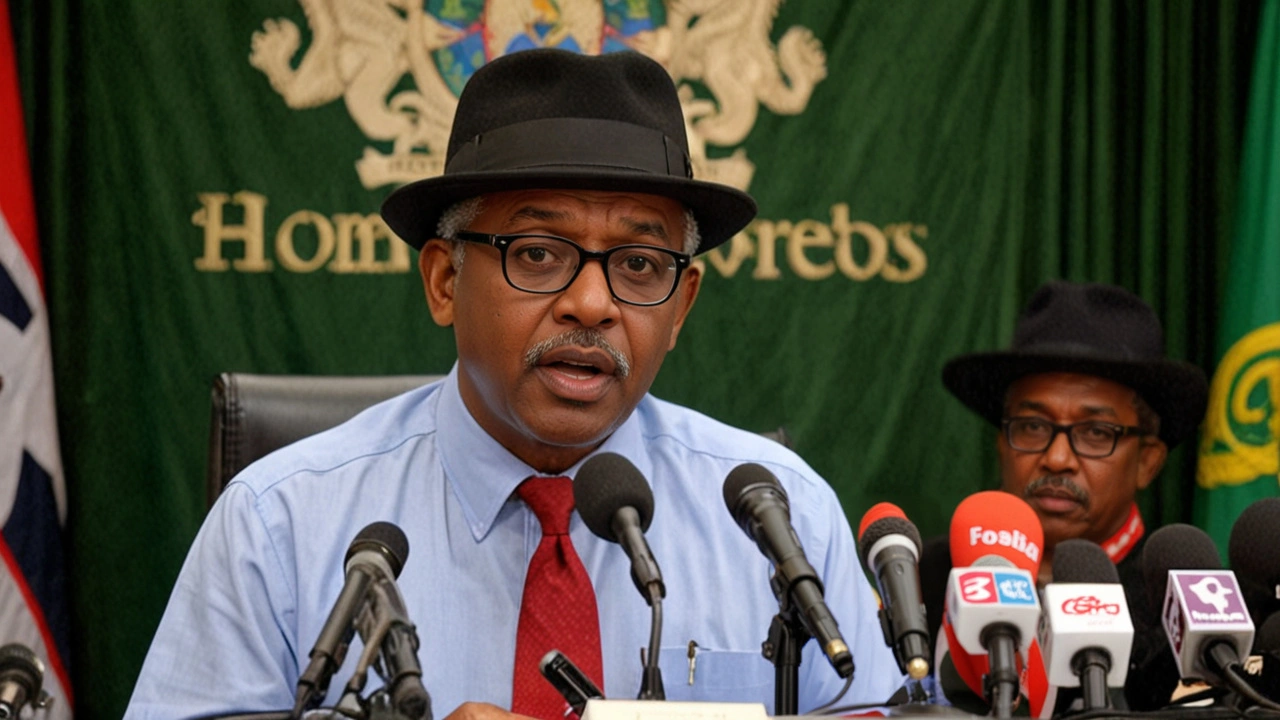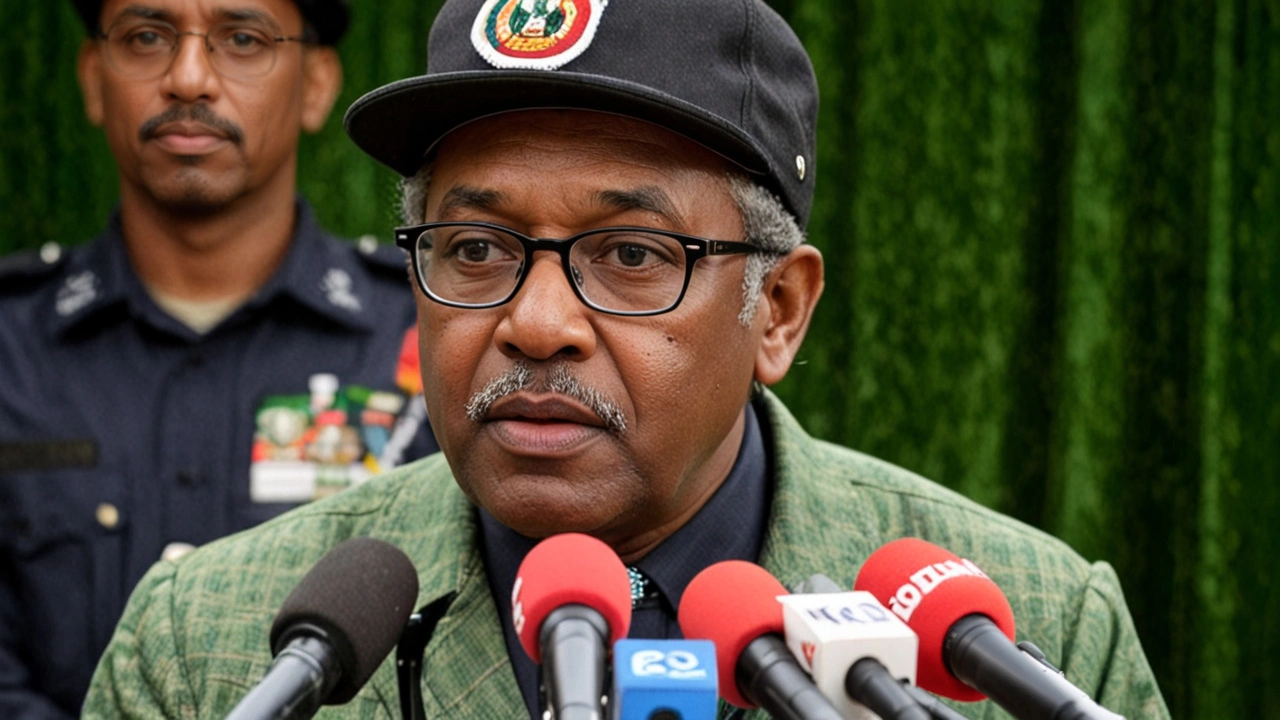8 Jul 2024
- 7 Comments
Governor Bala Mohammed's Declaration
Governor Bala Mohammed of Bauchi State has proclaimed Monday, July 8, 2024, as a work-free day to honor the Islamic New Year, marking Al-Muharram, the first day of the Islamic Calendar. This day is of great significance to the Muslim community, and the Governor's decision reflects a commitment to recognizing and respecting religious customs and festivities.
Al-Muharram signifies the beginning of the new Islamic year, a momentous occasion for Muslims worldwide. It is a time for reflection, prayer, and for some, fasting. The holiday provides an opportunity for individuals to gather with family and friends, attend religious services, and participate in various community activities. Governor Mohammed's declaration ensuring a work-free day allows the people of Bauchi State to immerse themselves fully in the cultural and spiritual observances of Al-Muharram.
Importance of Al-Muharram
The Islamic New Year, also known as the Hijri New Year, commemorates the historical migration (Hijra) of the Prophet Muhammad and his followers from Mecca to Medina in 622 CE. This event is a foundational moment in Islamic history and is a time of introspection and renewal for Muslims. Al-Muharram, the first month of the Islamic calendar, holds particular significance as it is considered one of the four sacred months in Islam. During this period, warfare is traditionally prohibited, allowing for peace and divine reflection.
Muslims observe Al-Muharram by engaging in various religious practices such as reading the Quran, performing extra prayers, and reflecting on the lessons from the Hijra. It is also a time for charitable acts and community service. The Governor's proactive stance in facilitating these observances by declaring a public holiday underscores the importance of supporting and promoting cultural and religious harmony within the state.

Promoting Religious Diversity and Inclusion
Bauchi State's declaration of a public holiday for the Islamic New Year fits within broader efforts to promote religious diversity and inclusion. Nigeria is a country of vast cultural and religious diversity, with Islam and Christianity being the two major religions. Recognizing and celebrating these significant religious holidays can contribute to unity and mutual respect among the populace.
Governor Bala Mohammed's initiative to declare a work-free day is not only a gesture of goodwill but also a commitment to fostering an environment where all religious beliefs are respected and celebrated. This underscores the state's role in upholding the values of freedom and respect for all denominations. Bauchi State’s leadership aims to set an example for other regions, demonstrating how inclusivity can contribute to a more harmonious and cohesive society.
Community Response
The announcement has been met with positive reactions from the Muslim community in Bauchi State. Local religious leaders and community members have expressed their gratitude, noting that the declaration will enable them to observe the Islamic New Year with the reverence and solemnity it deserves. The sentiment among many is that such decisions help in nurturing a sense of belonging and appreciation for their cultural heritage.
In addition to religious observances, the holiday provides an economic boost as families and communities gather, spending on food, gifts, and local businesses. The work-free day allows everyone to participate in the festivities fully, strengthening community bonds and fostering a spirit of togetherness.

The Call for Continued Support
While Governor Bala Mohammed's declaration is a significant step, continuous support and recognition of all religious and cultural events are essential for promoting unity and understanding. Recognizing diverse religious practices can pave the way for peaceful coexistence and mutual respect. As Bauchi State sets a positive example, it encourages other states to follow suit, ensuring that every resident feels valued and respected.
In conclusion, the declaration of July 8, 2024, as a work-free day to celebrate Al-Muharram is a reflection of Bauchi State's dedication to religious inclusivity and respect. This initiative supports the Muslim community in observing a significant cultural milestone while promoting unity and harmony within the state. Governor Mohammed’s proactive leadership in this regard sends a powerful message of acceptance and celebration of diversity, which is pivotal in building a cohesive and inclusive society.


Eduardo Torres
July 8, 2024It’s encouraging to see leaders recognize and respect cultural traditions.
Emanuel Hantig
July 8, 2024Seeing Bauchi’s leadership honor a sacred month feels like a reminder that policy can be both pragmatic and heartfelt 🙂 The Islamic New Year offers a moment for reflection that transcends borders. It also highlights how inclusive gestures can ripple through communities. I hope more regions take note and celebrate diversity.
Byron Marcos Gonzalez
July 9, 2024Behold the proclamation-a veritable tapestry of reverence unfurling across Bauchi’s streets. The calendar itself seems to bow before the Governor’s decree. Such magnanimity drapes the state in a cloak of unity. One can almost hear the echo of ancient caravans rejoicing. The drama of history re‑imagined in modern policy.
Chris Snyder
July 9, 2024From a practical standpoint, granting a day off can boost local commerce as families gather and spend. It also gives citizens a chance to engage in charitable activities without work constraints. The gesture aligns with broader goals of social cohesion. 🌟
Hugh Fitzpatrick
July 10, 2024Oh sure, because a single day off is exactly what solves every societal tension-how utterly groundbreaking. Yet maybe we’ll see a parade of such "innovations" soon, just delightful.
george hernandez
July 11, 2024The declaration of a public holiday for Al‑Muharram is more than a calendar adjustment. It signals a recognition of the deep historical currents that shape the identity of Bauchi’s Muslim populace. By allocating a work‑free day, the governor invites reflection on the Hijra, the seminal migration that founded the Islamic calendar. Families are afforded the space to gather around shared meals, breaking bread in a manner that reinforces communal bonds. Religious scholars can lead extended prayers without the pressure of a looming work schedule. This pause from daily labor also offers a rare moment for young people to learn about the significance of the sacred month from elders. Economically, local vendors experience a surge in demand for traditional foods, clothing, and gifts. This boost to small businesses contributes to a healthier market ecosystem within the state. Moreover, the holiday exemplifies how policy can be wielded to promote social cohesion in a pluralistic society. It sends a message that cultural observances are not merely tolerated but celebrated at the highest levels of government. Such gestures can reduce feelings of marginalization among minority groups. When citizens perceive that their traditions are respected, the social contract is reinforced. This, in turn, can lower tensions that might otherwise fester beneath the surface. The precedent set by Bauchi may inspire neighboring regions to adopt similar inclusive measures. Over time, a series of thoughtful recognitions can weave a tapestry of unity across the diverse fabric of Nigeria. In the end, a single day off becomes a catalyst for dialogue, understanding, and shared prosperity.
bob wang
July 11, 2024Indeed, the points articulated herein, while eloquently expressed, merit further consideration; the interplay between cultural recognition and socioeconomic impact, as highlighted, underscores a multifaceted strategy, one that aligns with constitutional principles, promotes civic harmony, and encourages fiscal vitality 😊.